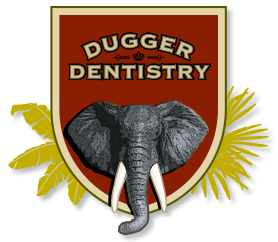Understanding the Causes of a Toothache

At our family dentistry in West Linn, Dr. Dugger sees patients for a variety of reasons. Whether dental exams and cleanings designed to prevent decay, teeth whitening treatments to restore the luster lost to smile due to enamel staining foods and drinks, or the need for a dental implant, patients know they will receive the best care possible when walking through our doors.
It’s easy to take our oral health for granted, so when something does go wrong we immediately notice. While patients visit for a variety of reasons, the one problem that’s most closely identified with visiting the dentist is a toothache.
A toothache can have a variety of causes. While some are less serious than others, they all require that you seek immediate care from Dr. Dugger. So that you can better understand the causes and need for treatment, here’s what you need to know about a toothache.
What Causes a Toothache?
A toothache can have a variety of causes, but they all typically generate the same type of symptoms. The most common, of course, is feeling a consistent sharp or throbbing pain, or a sudden pang of discomfort whenever you touch or bite down on the tooth. Occasionally, swelling will develop around the tooth and you may experience a fever or headache. An infected tooth may even begin to seep pus as the infected tissue begins to drain.
These symptoms are generally caused by:
- Tooth decay. Plaque, a harmful oral bacteria, attacks the hard outer layer of our teeth known as enamel. Over time, plaque can create cracks in tooth enamel that leads to cavities and decay. When the underlying roots and nerves of a tooth come under attack by plaque and the formation of a cavity, a toothache can develop as a symptom.
- Abscessed tooth. An oral abscess is a pocket of pus that forms underneath the gums and around an infected tooth. As the abscess continues to grow larger, the pain and sensitivity you experience will only become worse. Dental abscesses will not get better on their own and must be treated to not only alleviate any pain or discomfort, but to keep the infection from spreading as well.
- Fractured tooth. When the enamel that holds our teeth together cracks it can cause significant discomfort and a prolonged toothache. Unlike other parts of the body that will eventually heal, or teeth will not repair themselves naturally. A cracked, chipped, or broken tooth must be treated by a dentist. Failure to receive care could result in permanent tooth loss.
- Infected gum tissue. Gum disease is a chronic infection of the tissue that helps to hold our teeth into position. When gum disease becomes severe, it can cause gum tissue to become red, swollen, infected, and to bleed easily. Advanced gum disease can even destroy the underlying bone structure and soft tissue that provide support for our teeth. When this occurs, you may experience swelling, discomfort, and teeth that shift or move. Without treatment, advanced gum disease will lead to permanent tooth loss.
When to Visit Our Family Dentistry in West Linn?
While the cause of a toothache can vary in severity, nearly all demand the attention of a dentist like Dr. Dugger to both eliminate symptoms and prevent the condition from becoming worse. However, if you experience the following symptoms, you need to immediately schedule an appointment:
- Your toothache lasts longer than 1 or 2 days
- Your toothache is causing severe discomfort
- Your toothache is accompanied by a fever, ear pain, or jaw pain
Don’t let you and your oral health suffer as the result of a toothache. Our team here at Dugger Dentistry is ready and able to help diagnose the cause of your toothache and provide the care you need to restore your smile back to health.
